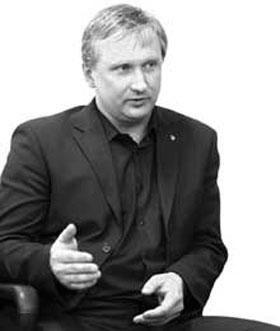13 arguments showing that conditions in penal colonies are not "almost like in the army"
Lawyer of the Human Rights Center "Viasna" Pavel Sapelka compares the challenges faced in prisons in Belarus with the Soviet and European practice and draws 13 arguments showing that present-day Belarusian penal colonies aren't “almost like the army”.
The functions of prosecution and enforcement of penalties are executed by one agency, the Ministry of Internal Affairs, despite the fact that their separation is a commonly accepted practice.
Death penalty is still used in Belarus. As repeatedly stated by the United Nations Human Rights Committee, the procedure of its execution in our country falls under bears signs of torture and inhuman treatment of the executed and their relatives.
The reduction of the crime rate by almost twice in the last 7-8 years (by 90%) was accompanied by the decrease of the number of prisoners only by 40%, from which it is clear that the country is still far from a real humanization of the legal practice and the deprivation of liberty remains a major tool in the fight against crime. At present, prisons contain almost as many people as in 2010, when the crime rate was 1.5 times higher.
Belarus is one of the few countries where prisoners can be punished by deprivation of visits from relatives. There are no such provisions in Russia, Kazakhstan and Moldova. In Belarus, a prisoner held in a minimum security colony can see his/her relatives not more than ten times a year, in Moldova – 16 times, in Turkmenistan – 20 times.
The women who have given birth to a child in prison do not receive any of the available types of benefits in Belarus, including lump-sum allowance for childbirth; they are not given a leave to care for the child, the demands to the labor norms aren't reduced for them and the time they spend on feeding the children is not compensated. A child is taken away from their mothers at the age of three years and is sent to an orphanage, from which he can be taken by mother after her release from jail.
The prisoners have to pay for their maintenance in prison on their own. The appropriate money are exacted from their wages. They pay for the public utilities, food, clothes and other kinds of provision. They also commonly have to pay for the repairs and improvement of the penitentiary institutions.
The prisoners don't pay the obligatory insurance fees and aren't covered by the rules of remuneration provided for by the Labor Code. The prisoners' vacation leaves are twice shorter than the minimal vacation leaves at large and aren't paid.
When saying that penal colonies aren't overcrowded, MIA officials are guided by the national norms of space per person – 2 square meters of living space, whereas the European standard is 4 meters, which is twice as much. Such norms were implemented in the legislation even by Moldova, which is not a very rich country. However, even the stated norm of 2 square meters is not observed in certain institutions, such as remand prisons, especially “transit cells”.
Last year, only 70% of prisoners were employed in penitentiary institutions. Accordign to the conclusion fo the International Federation for Human Rights (FIDH), made in 2013 as a result of a joint monitoring with the HRC “Viasna”, conducted with the use of the data, provided by “Platform Innovation”, the conditions of work and their impact on the health of prisoners contradict to numerous international undertakings of Belarus in the sphere of human rights.
The people, who are kept in remand prisons (about 6,000) are deprived of the right to vote until their conviction. All convicts are deprived of the right to vote, too.
Correspondence between the prisoners and their lawyers is censored. The prison administration has the right not to send the prisoners' letters to the receivers, whch, to its mind, are unsuitable for solving the issues, addressed by the prisoner.
More than 5,000 people are kept in activity-therapy centers in Belarus, being deprived of liberty, though they haven't committed any crimes. Except for Belarus, activity therapy centers exist only in the so-called Dnestr Moldavian Republic.
There is no public control over the functioning of penitentiary institutions, including activity therapy centers. Eiight public supervisory commissions visited only 7 out of 28 penitentiary institutions in 2014, but allegedly found no violations. These commissions have no right to visit activity therapy centers. What concerns remand prisons, the conditions there can be checked only by the prisoners who serve their penalties there.


















